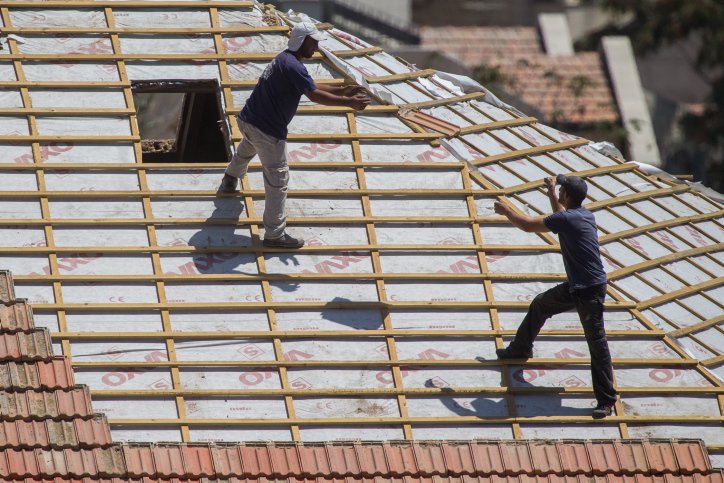The final specks of white paint are still clinging stubbornly to my fingernails.
Last week I took off several days from work in order to prep and paint the Galilee house we had been renting. My oldest son, who recently completed his IDF infantry service, supplied – along with his brothers – most of the manpower.
Several days of pure physical labor were surprisingly refreshing in spite of the heat wave. I had forgotten the therapeutic cleansing virtue of sweat.
While pulling out picture-hooks from the walls, spackling, sanding, painting and cleaning, I had ample time to reflect on what an inheritance and a temporal dwelling mean. In addition to being spiritual and emotional creatures, we are also tied strongly to things like 22 T-shirts, 51 cardboard boxes of miscellaneous stuff, a black-speckled marble kitchen counter, and an aging concrete structure with four external walls and one sagging red-tile roof!

A few of the families in this Galilee village have lived here for a hundred years since their forefathers made aliyah. Others have just now moved here to try out what it’s like to be away from the noise and pressure of the Tel Aviv metropolis.
What does it mean to own a home, an inheritance? In any nation? And here in Israel?
Did mankind’s Creator intend for extended family members to live close to each other?
The Torah portion at the end of Moses’ 4th book takes a look at some of these questions. Numbers 34 -36 talks about dividing up the land of Canaan into an inheritance for each tribe, family and household.
“…every Israelite shall keep the tribal land inherited from his forefathers…” (Numbers 36:5-7)
As my sons grow up and start to move out on their own, I’m glad they got some practice painting in anticipation of them one day having their own homes here in the Land of Promise. With Israeli housing and apartment prices being among the most expensive in the world, that could be no small faith-challenge.
An Australian study examined the ratio of average housing prices per square meter to average income in 39 countries. The study found Israel to be the second most expensive nation on earth for housing, followed by Switzerland and topped only by South Korea. The housing expense ratio for Israel was 4.8 times more expensive than the USA, which came out just behind Turkey for the least expensive place to buy a home, relative to income. Reasons for Israel’s expensive housing include:
- Small land size
- High demand
- High population growth
- Expensive concrete construction
- Slow land development approval procedures
For at least the last decade, affordable housing has been one of the top issues that bother Israeli voters, at least those who are not yet home-owners. Netanyahu and his partners tried to flatten rising housing prices with little success. Now the new government has also put this matter in their sights. The coming months will tell if the coalition can survive long enough to take action on this as well as other stubborn problems.

Affordable housing is a desire high on the wish list of both Israel’s Jewish and Arab citizens. This was a central factor leading an Arab political party to join the ruling coalition for the first time. Who knows? Maybe Arab-Israeli political insistence on progress in this matter will lead to more Arab and Jewish citizens gaining an inheritance in the Land. Wouldn’t that be poetic justice.














